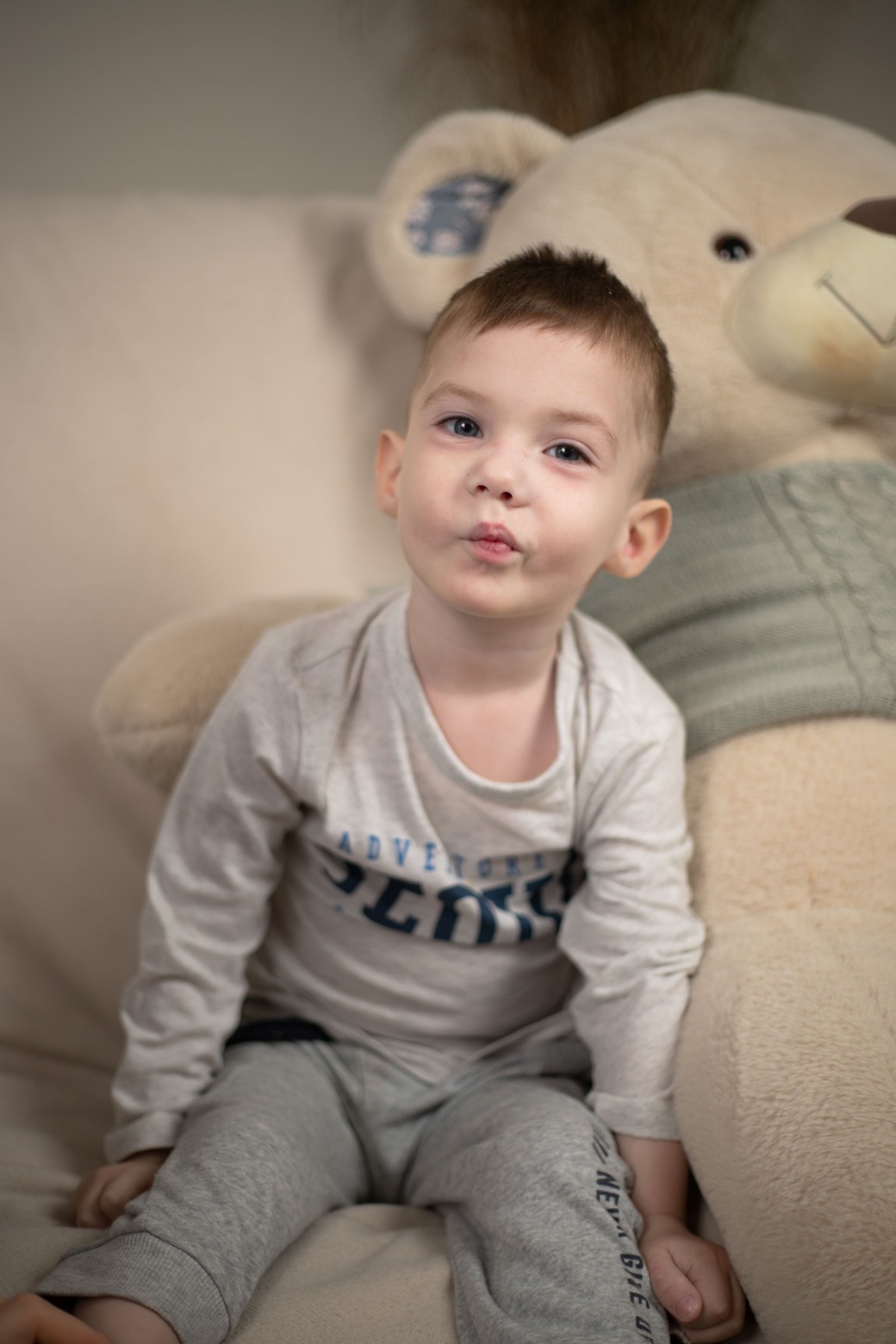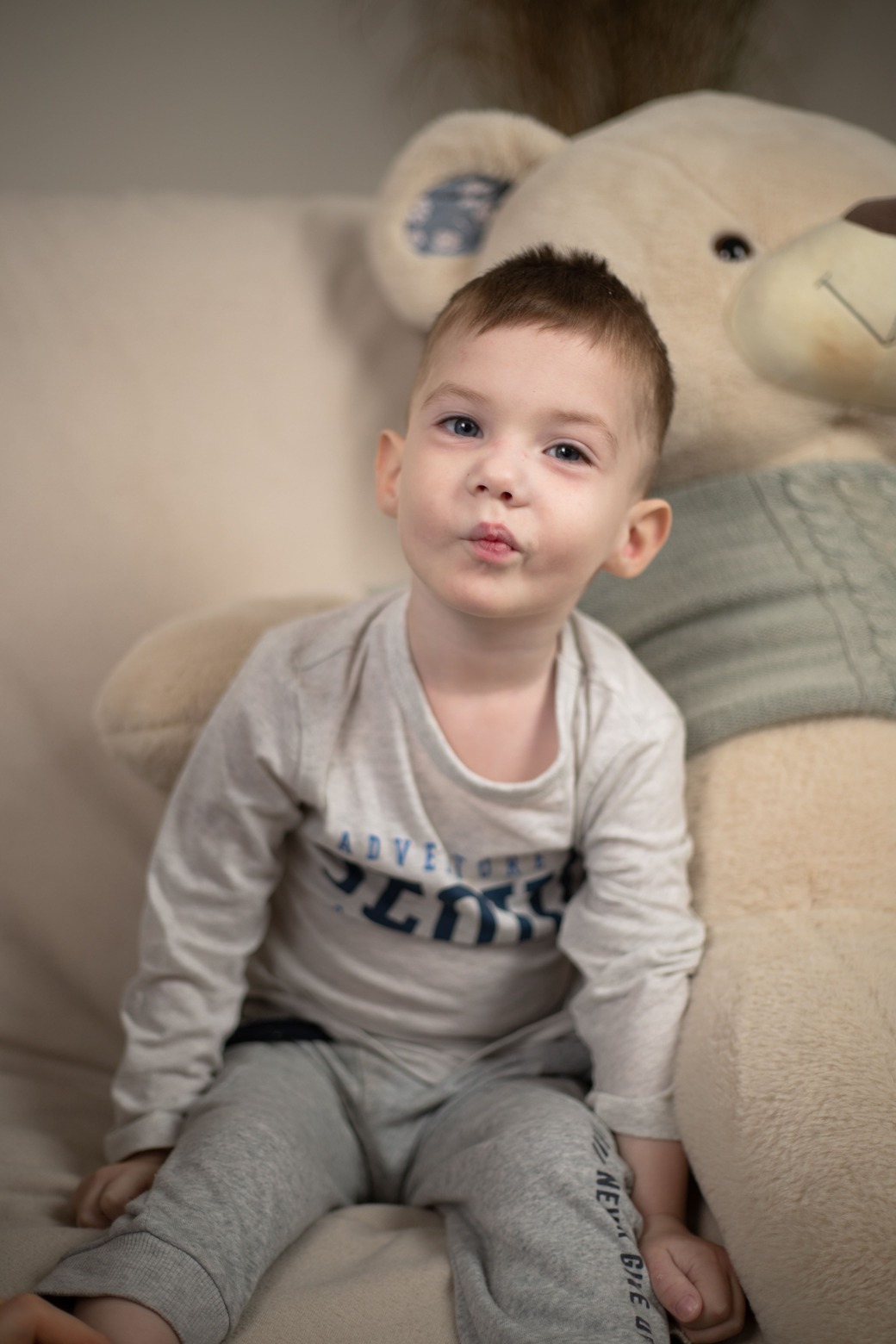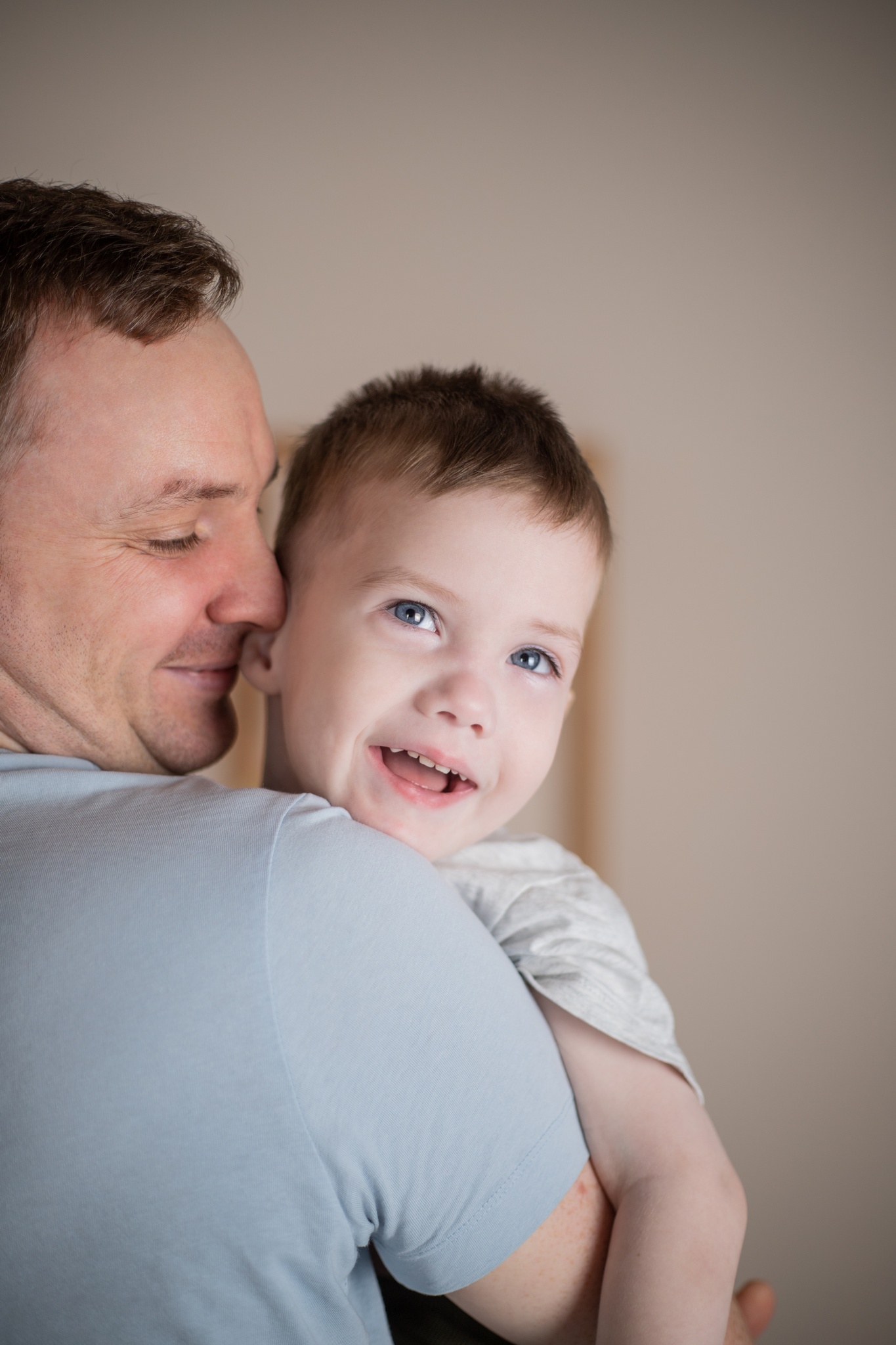Mark was born and raised in Moscow, but he currently resides in Uzbekistan with his parents. He was a healthy child and was progressing normally. However, at the age of 7 months, he rapidly developed Vesta syndrome, which is one of the most severe forms of childhood epilepsy. Within two months, Mark's health deteriorated dramatically. He became an immobile infant with a vacant expression, losing all physical and mental abilities, including the ability to chew food. The disease continued to progress, eventually leading to the loss of his sight and hearing.
When Mark reached 11 months, he underwent a month-long course of pulse therapy involving hormones, which managed to halt the regression but unfortunately did not address epilepsy. Mark continued to suffer from seizures. Genetic testing revealed that he has a rare genetic disorder known as Alkuraya-Kuchinskas syndrome with a mild phenotype. Although this condition is not yet fully understood, there is hope for Mark's recovery.
In early 2021, when Mark turned 1 year old, he began receiving care from Dr Russi, a renowned specialist at the Teknon Clinic in Barcelona, Spain. Dr Russi has already helped numerous children with similar diseases. Using a special technique, the doctor prescribed individualized medications for Mark. After the first medication, Mark displayed emotions and regained the ability to swallow food and water normally.
With the subsequent introduction of the second and third medications, Mark's vision partially returned by the age of two, and he could sit and chew on his own. Over the course of two years of treatment, there has been significant improvement in Mark's condition. However, the epileptic focus in his brain, triggering discharges every 8 seconds, hinders his development.
Thanks to the many kind people and one wizard, we managed to complete Mark's fundraising and give him a chance for a healthy future. On February 19, 2024, Mark was hospitalized at the Tencon Clinic. The first stage of treatment—a surgery using invasive stereo EEG monitoring with navigation—was performed on February 21. Six electrodes were implanted into his cerebral cortex and connected to round-the-clock monitoring, which allowed us to determine the exact location and spread of the epileptic foci within six days. Two small foci on the left side (which were ablated using the same electrodes) and two large foci on the right side were identified. The second stage of treatment took place on February 28. The surgery was successful, and all the planned epileptic foci were removed.
⠀
On July 4, 2024, a consultation with Dr. Russi took place. After reviewing the results of the EEG conducted on Mark the day before, he said that everything looks good. He did not see any epileptic activity. A repeat EEG is scheduled for September 2024. Epileptic seizures no longer trouble the boy, and his development is progressing.
⠀
Friends, thank you so much for the kindness of your hearts. May all the good you have done come back to you.





